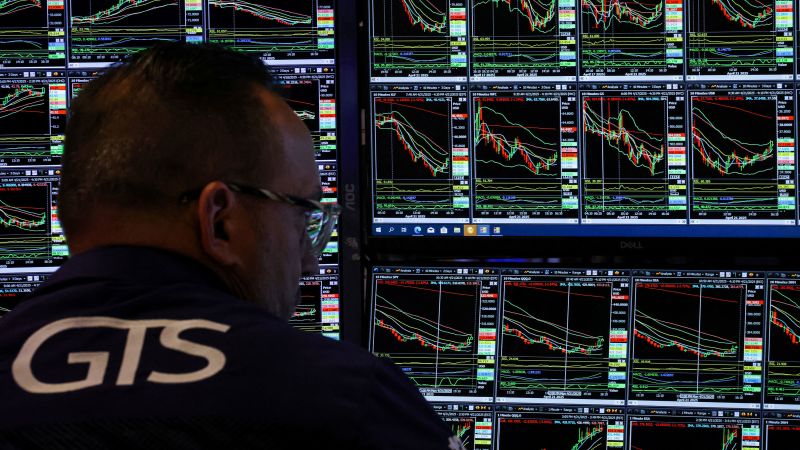
Trump chaos has already damaged the economy. It may be too late to fix it
CNN
President Donald Trump appears to be walking back some of his more extreme positioning on the economy — pivoting yet again on his signature tariff agenda and renewing concerns that his haphazard approach has already done serious economic damage.
President Donald Trump appears to be walking back some of his more extreme positioning on the economy — pivoting yet again on his signature tariff agenda and renewing concerns that his haphazard approach has already done serious economic damage. On Tuesday, Trump softened on two key issues that had been giving Wall Street nightmares: He signaled openness to easing tariffs on China, and said he has “no intention” of firing Federal Reserve Chair Jerome Powell. But the abrupt shift in tone was yet another reminder of the turbulence emanating from the White House that could push the US, and potentially other economies, into a recession. More damaging than the tariffs themselves is the uncertainty the White House has created, said Wendy Edelberg, senior fellow in Economic Studies at the Brookings Institution, in an interview with CNN. “And the lurching hasn’t ended. In fact, this is simply another lurch.” After an abysmal few weeks, US stocks surged Tuesday and Wednesday — a sign of Wall Street’s relief that the president appears to be heeding warnings from CEOs and close advisers who say his 145% tariffs on China aren’t sustainable. In an Oval Office gaggle with reporters Tuesday, Trump also refrained from attacking Powell. (It was a rare moment of restraint with regard to Powell, whom Trump has recently called a “major loser.” By Wednesday evening, Trump had resumed a more threatening tone, saying he “might call him.”) But US stocks remain down 11% since Trump took office in January, battered by near-constant changes and mixed messaging from the White House about a tariff agenda that would fundamentally alter global trade and slam the brakes on economic growth.

Sales prices for sports teams are soaring to record levels. Here’s why, and what that means for fans
The Los Angeles Lakers topped their archrival the Boston Celtics with a record-setting $10 billion franchise price tag this week — just three months after the Celtics held the honor for the highest sale price for a professional sports team at $6 billion. The record may not last long.

Predictions from mainstream economists were dire after President Donald Trump launched his tariff campaign just a couple weeks after he began his second term in office: Prices would rise — sharply — they said, reigniting an inflation crisis that tens of millions of Americans had elected him to solve.

 Run 3 Space | Play Space Running Game
Run 3 Space | Play Space Running Game Traffic Jam 3D | Online Racing Game
Traffic Jam 3D | Online Racing Game Duck Hunt | Play Old Classic Game
Duck Hunt | Play Old Classic Game









